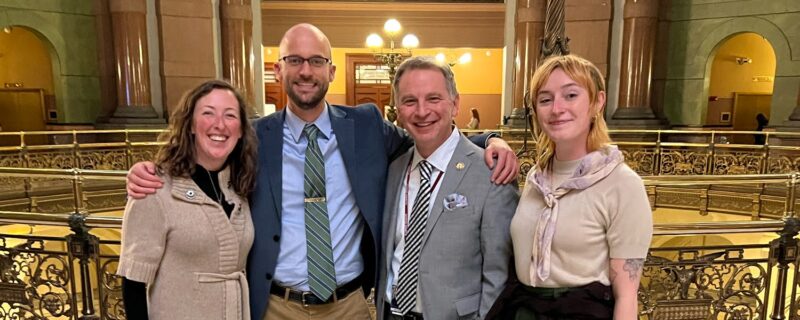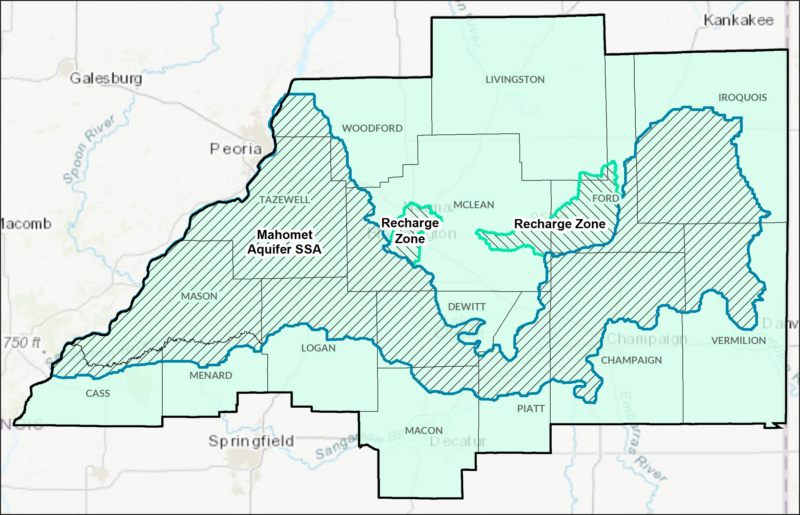
On Thursday April 10th, the bill to protect the Mahomet Aquifer from carbon sequestration (SB1723) passed the Illinois Senate on a 55-0 vote. It was a powerful moment, with bill sponsor Senator Faraci evoking the legacy of the late Senator Scott Bennett in his comments on the bill. Its passage brought a round of applause in the Senate chambers.
The unopposed vote was due to hard work by Senator Faraci and others in the senate, who had to navigate opposition from industry, renewable fuels association (ethanol) and, most importantly, labor unions. Ultimately, SB1723 was amended to bring labor to neutral, making it possible to move the bill forward.
Prairie Rivers Network supports SB1723, even as amended. We fought hard to pass the strongest bill possible, and accepted concessions only when it became clear they were the only path to protecting the majority of the Mahomet Aquifer. Just a year ago, we were told the conversation was over and that Illinois’ only sole source aquifer was not going to be protected from carbon sequestration. Now, we’re on a path to protecting most of the aquifer, as SB1723 heads to the House (and you can help).
What changed with the amendment?
Before the amendment, SB1723 would have prevented carbon sequestration that overlies, underlies, or passes through a sole source aquifer or its recharge areas. Recharge areas–identified by US EPA during the sole source designation–are located outside the aquifer itself but supply it with water. The amended version no longer bans carbon sequestration in recharge zones, though other protections for those areas still apply and we hope to continue to strengthen those protections. The following map identifies the Mahomet Aquifer SSA (where the ban applies) and the Recharge Zones (where it does not):

As of now, the One Earth project located near Gibson City is the only proposed project that is in the recharge area. The amended bill still protects the Mahomet Aquifer from three proposed projects and an unknown number of future projects that had not been yet announced to the public.
The amendment also creates a 5-year study of carbon sequestration through and under the Mahomet Aquifer. We believe this is, frankly, an attempt to make the ban temporary. Proponents of carbon sequestration will use that time period to argue that carbon sequestration in the Mahomet Aquifer is worth the risk. Of course, no risk is acceptable for a sole source aquifer, and Prairie Rivers Network and our partners will continue to work to advocate for the Mahomet Aquifer in the study process.
Ultimately, the only way to overturn a legislative ban is to pass another bill. If we pass SB1723, anyone looking to sequester carbon in the Mahomet Aquifer will have to go back to the legislature.
What’s Next?
The Senate bill now heads to the House with Representative Ammons as the chief sponsor. On Tuesday, April 29th, the House Energy & Environment Committee moved the bill out of committee on a bipartisan 20-5 vote. Its last step in the Illinois General Assembly is a vote on the House floor.
While it did not advance on its own, the House version of the bill, HB3614, had an impressive roster of over 40 cosponsors, thanks to the leadership of Representative Ammons. With SB1723 passed out of the Senate, it will now be the legislative vehicle in the House, so we’ll need to rebuild that momentum behind SB1723.
You can help by asking your representative to cosponsor and vote yes on SB1723.
We’ll keep you posted.







